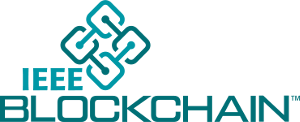2018-2020 IEEE Blockchain Technical Briefs Editorial Board
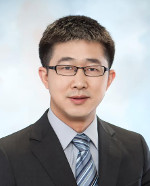 Chonggang Wang received his Ph.D. degree from Beijing University of Posts and Telecommunications (BUPT) in 2002. He is currently a Member Technical Staff with InterDigital Communications. His current research interests include decentralized IoT, semantic computing and services for IoT, fog computing for IoT, IoT data analytics, and advanced IoT services. He also has abundant IoT standardization experience including oneM2M, IETF, IEEE, and ETSI TC M2M. He was the co-founder (2011-2013) and the founding Editor-in-Chief (EiC) of IEEE Internet of Things Journal (2014-2016). He is currently the Associate EiC of IEEE Transactions on Big Data and the EiC of IEEE Blockchain Technical Briefs. He is an IEEE Fellow for his contributions to IoT enabling technologies (2017).
Chonggang Wang received his Ph.D. degree from Beijing University of Posts and Telecommunications (BUPT) in 2002. He is currently a Member Technical Staff with InterDigital Communications. His current research interests include decentralized IoT, semantic computing and services for IoT, fog computing for IoT, IoT data analytics, and advanced IoT services. He also has abundant IoT standardization experience including oneM2M, IETF, IEEE, and ETSI TC M2M. He was the co-founder (2011-2013) and the founding Editor-in-Chief (EiC) of IEEE Internet of Things Journal (2014-2016). He is currently the Associate EiC of IEEE Transactions on Big Data and the EiC of IEEE Blockchain Technical Briefs. He is an IEEE Fellow for his contributions to IoT enabling technologies (2017).
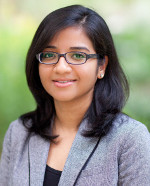 Olivia Choudhury is currently a postdoctoral researcher at IBM Research, Cambridge, MA, USA. Her research interests include blockchain technology, federated machine learning, healthcare analytics, bioinformatics, and cloud computing. At IBM Research, she leads the initiative on developing blockchain-based solutions for secure collection, management, and sharing of sensitive data in health and biomedical applications, particularly in multi-site clinical trials and IoT. She also leads the collaboration with the Decentralized Information Group at MIT on federated machine learning using linked data. She serves as the program committee member of ACM/IEEE Supercomputing Conference, reviewer for AMIA, IEEE ICHI, IEEE/ACM TCBB, and IEEE Cloud Computing, IEEE ICDCS, and IEEE CloudCom.
Olivia Choudhury is currently a postdoctoral researcher at IBM Research, Cambridge, MA, USA. Her research interests include blockchain technology, federated machine learning, healthcare analytics, bioinformatics, and cloud computing. At IBM Research, she leads the initiative on developing blockchain-based solutions for secure collection, management, and sharing of sensitive data in health and biomedical applications, particularly in multi-site clinical trials and IoT. She also leads the collaboration with the Decentralized Information Group at MIT on federated machine learning using linked data. She serves as the program committee member of ACM/IEEE Supercomputing Conference, reviewer for AMIA, IEEE ICHI, IEEE/ACM TCBB, and IEEE Cloud Computing, IEEE ICDCS, and IEEE CloudCom.
She received her Ph.D. in Computer Science and Engineering from the University of Notre Dame in 2017. Her doctoral thesis focused on developing cloud-based infrastructures to expedite analysis of and machine learning-based algorithms to improve quality of big data genomics.
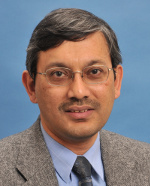 Mohammed Atiquzzaman obtained his M.S. and Ph.D. in Electrical Engineering and Electronics from the University of Manchester (UK). He currently holds the Edith Kinney Gaylord Presidential professorship in the School of Computer Science at the University of Oklahoma and is a senior member of IEEE. Dr. Atiquzzaman is the Editor-in-Chief of Journal of Networks and Computer Applications and the founding Editor-in-Chief of Vehicular Communications and has served/serving on the editorial boards of IEEE Communications Magazine, IEEE Transactions on Mobile Computing, International Journal on Wireless and Optical Communications, Real Time Imaging Journal, Journal of Communication Systems, Communication Networks and Distributed Systems, and Journal of Sensor Networks. He also guest edited many special issues in various journals. He has served as the general chair of 4th International Conference on Internet of Vehicles and has served as symposium co-chairs for IEEE Globecom (2006, 2007, and 2014, 2016) and IEEE ICC (2007, 2009, 2011, and 2012, 2014, 2016 2017) conferences. He co-chaired ChinaComm (2008) served as general chair of 2017 International Conference on Smart Internet of Things (SmartIoT 2017) and the SPIE Quality of Service over Next Generation Data Networks conferences (2001, 2002, 2003, and 2005). He was the panels co-chair of INFOCOM’05 and is/has been in the program committee of numerous conferences such as INFOCOM, ICCCN, and Local Computer Networks. He serves on the review panels of funding agencies such as the National Science Foundation and National Research Council (Canada) and Australian Research Council (Australia).
Mohammed Atiquzzaman obtained his M.S. and Ph.D. in Electrical Engineering and Electronics from the University of Manchester (UK). He currently holds the Edith Kinney Gaylord Presidential professorship in the School of Computer Science at the University of Oklahoma and is a senior member of IEEE. Dr. Atiquzzaman is the Editor-in-Chief of Journal of Networks and Computer Applications and the founding Editor-in-Chief of Vehicular Communications and has served/serving on the editorial boards of IEEE Communications Magazine, IEEE Transactions on Mobile Computing, International Journal on Wireless and Optical Communications, Real Time Imaging Journal, Journal of Communication Systems, Communication Networks and Distributed Systems, and Journal of Sensor Networks. He also guest edited many special issues in various journals. He has served as the general chair of 4th International Conference on Internet of Vehicles and has served as symposium co-chairs for IEEE Globecom (2006, 2007, and 2014, 2016) and IEEE ICC (2007, 2009, 2011, and 2012, 2014, 2016 2017) conferences. He co-chaired ChinaComm (2008) served as general chair of 2017 International Conference on Smart Internet of Things (SmartIoT 2017) and the SPIE Quality of Service over Next Generation Data Networks conferences (2001, 2002, 2003, and 2005). He was the panels co-chair of INFOCOM’05 and is/has been in the program committee of numerous conferences such as INFOCOM, ICCCN, and Local Computer Networks. He serves on the review panels of funding agencies such as the National Science Foundation and National Research Council (Canada) and Australian Research Council (Australia).
Mohammed received from IEEE the 2018 Satellite and Space Communications Technical Recognition Award for valuable contributions to the Satellite and Space Communications scientific community. He also received the 2017 Distinguished Technical Achievement Award from IEEE Communications Society in recognition of outstanding technical contributions and services in the area of communications switching and routing. In recognition of his contribution to NASA research, he received the NASA Group Achievement Award for “outstanding work to further NASA Glenn Research Center’s effort in the area of Advanced Communications/Air Traffic Management’s Fiber Optic Signal Distribution for Aeronautical Communications” project. He is the co-author of the book “Performance of TCP/IP over ATM networks” and has over 270 refereed publications, which are accessible at www.cs.ou.edu/~atiq. His research interests are in communications switching , transport protocols, wireless and mobile networks, ad hoc networks, satellite networks, quality of service, and optical communications. His research has been funded by National Science Foundation (NSF), National Aeronautics and Space Administration (NASA), Us Air Force, Cisco, Honeywell, Oklahoma Department of Transportation, Oklahoma Highway Safety Office through grants totaling over $7M.
 Nathan Ming Kun Aw is a blockchain engineer with a leading bank in ASEAN. He is a pioneer Hyperledger technical ambassador. Nathan Aw also sits on the ERC725 alliance, a standards setting group for blockchain-based identity (decentralized identity).
Nathan Ming Kun Aw is a blockchain engineer with a leading bank in ASEAN. He is a pioneer Hyperledger technical ambassador. Nathan Aw also sits on the ERC725 alliance, a standards setting group for blockchain-based identity (decentralized identity).
With more than 3 years hands-on experience in designing, building and deploying blockchain in an actual production environment, Nathan has significant technical know-how in how blockchain operates in a real-world setting.
He was also invited to be a blockchain keynote speaker in Shanghai in 2017. He also shares his technical thought leadership frequently. He is a technical guest writer at Hyperledger and the Bitcoin Magazine. One of his articles, titled "Understanding the Limits and Potential of Blockchain Technology" is available on Nasdaq.
Nathan’s deep technical expertise and interest lies in the area of Distributed Systems, Cryptography, Decentralized Trust Design & Architecture, On-chain & Off-chain Paradigm and AI Enabled Smart Contracts. He also follows closely the development in post-quantum cryptography and analyses its potential far-reaching impact on Blockchain technologies.
Nathan Aw brings with him 6 years of enterprise software implementation experience from leading companies such as NTT Data, Accenture and Oracle. He graduated from Singapore Management University (SMU), a leading university in Asia, with a BSc in Information Systems.
 Claire-Isabelle Carlier is an Enterprise Architect at Brookfield Renewable Partners, where she advises various operating businesses across the globe on their strategic technology planning. Her role involves supporting IT-OT convergence and adoption of new technologies. She became interested in blockchain back in 2015 shortly after the Ethereum platform was launched and the ideas of decentralized applications and smart contracts started spreading. Since joining Brookfield in 2017, she has been following closely the evolution of use cases for the energy sector and asset management, and the related market landscape of vendors and products. As member of IEEE Smart Cities Technical Committee, she has also been researching how blockchain could contribute to making cities smarter for citizens, organizations and municipalities.
Claire-Isabelle Carlier is an Enterprise Architect at Brookfield Renewable Partners, where she advises various operating businesses across the globe on their strategic technology planning. Her role involves supporting IT-OT convergence and adoption of new technologies. She became interested in blockchain back in 2015 shortly after the Ethereum platform was launched and the ideas of decentralized applications and smart contracts started spreading. Since joining Brookfield in 2017, she has been following closely the evolution of use cases for the energy sector and asset management, and the related market landscape of vendors and products. As member of IEEE Smart Cities Technical Committee, she has also been researching how blockchain could contribute to making cities smarter for citizens, organizations and municipalities.
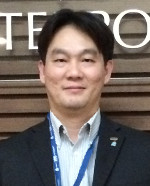 Kim-Kwang Raymond Choo received his Ph.D. in Information Security in 2006 from Queensland University of Technology, Australia. He currently holds the Cloud Technology Endowed Professorship at The University of Texas at San Antonio (UTSA). In 2016, he was named the Cybersecurity Educator of the Year - APAC (Cybersecurity Excellence Awards are produced in cooperation with the Information Security Community on LinkedIn), and in 2015 he and his team won the Digital Forensics Research Challenge organized by Germany's University of Erlangen-Nuremberg. He is the recipient of the 2018 UTSA College of Business Col. Jean Piccione and Lt. Col. Philip Piccione Endowed Research Award for Tenured Faculty, IEEE TrustCom 2018 Best Paper Award, ESORICS 2015 Best Research Paper Award, 2014 Highly Commended Award by the Australia New Zealand Policing Advisory Agency, Fulbright Scholarship in 2009, 2008 Australia Day Achievement Medallion, and British Computer Society's Wilkes Award in 2008. He is also a Fellow of the Australian Computer Society, an IEEE Senior Member, and an Honorary Commander of the 502nd Air Base Wing, Joint Base San Antonio-Fort Sam Houston.
Kim-Kwang Raymond Choo received his Ph.D. in Information Security in 2006 from Queensland University of Technology, Australia. He currently holds the Cloud Technology Endowed Professorship at The University of Texas at San Antonio (UTSA). In 2016, he was named the Cybersecurity Educator of the Year - APAC (Cybersecurity Excellence Awards are produced in cooperation with the Information Security Community on LinkedIn), and in 2015 he and his team won the Digital Forensics Research Challenge organized by Germany's University of Erlangen-Nuremberg. He is the recipient of the 2018 UTSA College of Business Col. Jean Piccione and Lt. Col. Philip Piccione Endowed Research Award for Tenured Faculty, IEEE TrustCom 2018 Best Paper Award, ESORICS 2015 Best Research Paper Award, 2014 Highly Commended Award by the Australia New Zealand Policing Advisory Agency, Fulbright Scholarship in 2009, 2008 Australia Day Achievement Medallion, and British Computer Society's Wilkes Award in 2008. He is also a Fellow of the Australian Computer Society, an IEEE Senior Member, and an Honorary Commander of the 502nd Air Base Wing, Joint Base San Antonio-Fort Sam Houston.
 Francisco Curbera is Director of Innovation for Blockchain in Healthcare and Life Sciences at IBM, where he leads the development of blockchain based solutions in the healthcare and life sciences industries. Prior to that he worked for the IBM Watson Health unit, where he directed technology innovation and adoption programs, and for the IBM Research division leading research in distributed computed infrastructure, business process management and health informatics. He holds a B.S. in Physics from Universidad Complutense in Madrid, Spain, and a Ph.D. in Computer Science from Columbia University.
Francisco Curbera is Director of Innovation for Blockchain in Healthcare and Life Sciences at IBM, where he leads the development of blockchain based solutions in the healthcare and life sciences industries. Prior to that he worked for the IBM Watson Health unit, where he directed technology innovation and adoption programs, and for the IBM Research division leading research in distributed computed infrastructure, business process management and health informatics. He holds a B.S. in Physics from Universidad Complutense in Madrid, Spain, and a Ph.D. in Computer Science from Columbia University.
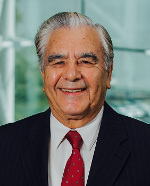 Mahmoud Daneshmand is Co-Founder and Professor of Department of Business Intelligence & Analytics; Professor of Department of Computer Science; and Academic Director of Network and Communications Management and Services M.S. program at Stevens Institute of Technology. He has more than 40 years of Industry & University experience as Professor, Researcher, Assistant Chief Scientist, Executive Director, Distinguished Member of Technical Staff, Technology Leader, Chairman of Department, and Dean of School at: Bell Laboratories; AT&T Shannon Labs–Research; University of California, Berkeley; University of Texas, Austin; Sharif University of Technology; University of Tehran; New York University; and Stevens Institute of Technology.
Mahmoud Daneshmand is Co-Founder and Professor of Department of Business Intelligence & Analytics; Professor of Department of Computer Science; and Academic Director of Network and Communications Management and Services M.S. program at Stevens Institute of Technology. He has more than 40 years of Industry & University experience as Professor, Researcher, Assistant Chief Scientist, Executive Director, Distinguished Member of Technical Staff, Technology Leader, Chairman of Department, and Dean of School at: Bell Laboratories; AT&T Shannon Labs–Research; University of California, Berkeley; University of Texas, Austin; Sharif University of Technology; University of Tehran; New York University; and Stevens Institute of Technology.
Dr. Daneshmand received his Ph. D and M.S. degrees in Statistics from the University of California, Berkeley; M.S. and B.S. degrees in Mathematics from the University of Tehran.
He is a Data Scientist, expert in Big Data Analytics, Machine Learning, and Artificial Intelligence with extensive industry experience including with the Bell Laboratories as well as the Info Lab of the AT&T Shannon Labs – Research.
He has published more than 180 journal and conference papers; authored/co-authored three books. He is well recognized within the academia and industry and holds key leadership roles in IEEE Journal Publications, Conferences, Industry - IEEE Partnership, and IEEE Future Direction Initiatives. He is Co-Founder and Chair of Steering Committee of IEEE IoT Journal; Member of Steering Committee of IEEE Transaction on Big Data; Advisory Board of the IEEE Blockchain Technical Briefs; Guest Editor of several IEEE Journal publications; Guest Editor of ITU Journal Special Issue on Data for Good; Co-Founder of the IEEE Big Data Initiative; Vice Chair of the IEEE Technical Community on Big Data. He has served as General Chair, Keynote Chair, Panel Chair, Executive Program Chair, and Technical Program Chair of many IEEE major conferences. He has given many Keynote speeches in major IEEE as well as international conferences.
 Andy Lippman is a Senior Scientist at MIT and founding associate director of the MIT Media Lab. He got his BS and MS at MIT, and PhD at EPFL, Lausanne. He has worked for 45 years on personal computing, networking and interactive systems. In the 1980s he directed the “Movie-Map” project that presaged Google's streetview. He helped pioneer visual computing and communications systems such as MPEG and digital HDTV. His current research group addresses Viral Communications, systems that are often peer-to-peer and can grow organically through adoption rather than a priori agreement. He has studied blockchains and digital currency for six years. Some recent work involves developing personal networks for social action and a blockchain-based identity control system for medical records.
Andy Lippman is a Senior Scientist at MIT and founding associate director of the MIT Media Lab. He got his BS and MS at MIT, and PhD at EPFL, Lausanne. He has worked for 45 years on personal computing, networking and interactive systems. In the 1980s he directed the “Movie-Map” project that presaged Google's streetview. He helped pioneer visual computing and communications systems such as MPEG and digital HDTV. His current research group addresses Viral Communications, systems that are often peer-to-peer and can grow organically through adoption rather than a priori agreement. He has studied blockchains and digital currency for six years. Some recent work involves developing personal networks for social action and a blockchain-based identity control system for medical records.
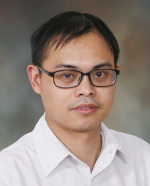 Chengnian Long is a full professor of Department of Automation, School of Electronic Information and Electrical Engineering, Shanghai Jiao Tong University. His research interest mainly focuses on the Cyber-Physical Systems (CPS), including:
Chengnian Long is a full professor of Department of Automation, School of Electronic Information and Electrical Engineering, Shanghai Jiao Tong University. His research interest mainly focuses on the Cyber-Physical Systems (CPS), including:
1) Cyber-Physical Systems (CPS) Security: security estimation and control of CPS, intrusion detection system, blockchain security; 2) Internet of Things (IoT): crowd sensing, fog computing, internet of vehicle, wireless MIMO system and 3) Distributed Intelligence Systems: embedded computer vision for smart devices (UAV, Autonomous vehicles), blockchain.
First, many current critical infrastructures such as power grids, transportation systems, and medicine systems are emerging with the tight integration of physical processes and cyber world. Due to the crucial role of cyber-physical systems in everyday life, cyber-physical security needs to be promptly addressed. Particularly, his research group is focus on the security estimation and control of power grids and industrial control systems.
Second, he has a long-term concern on the fundamental networking problem in Internet of Things, such as crowd sensing system, fog computing of intelligence gateway, MIMO wireless technology for smart devices. Particularly, his research group is focus on the sensing, computing, communication, and control integration of Internet of Vehicles (IoV).
Third, the long-term view is to develop system intelligence for both CPS and IoT. An emerging trend is data-driven distributed intelligence system. Thus, the large-scale trust and reliable data is the power source for intelligence system. Furthermore, to apply the AI technology (deep learning and computer vision) from the laboratory to the real world that require a new approach to supporting the associated power, weight, space, and real-time constraints. Particularly, his research group is focus on investigating the blockchain technology to construct distributed intelligence system and developing the embedded computer vision and deep learning technology for UAV and autonomous vehicles.
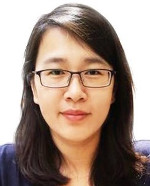 Dr. Qinghua Lu is a senior research scientist at CSIRO, Australia. Before she joined CSIRO, she was an associate professor at China University of Petroleum. She formerly worked as a researcher at NICTA (National ICT Australia). She received her Ph.D. from University of New South Wales in 2013. Her research interest includes architecture design of blockchain applications, blockchain as a service, model-driven development of blockchain applications, reliability of cloud computing, and service engineering. She has published more than 70 peer-reviewed academic papers in international journals and conferences. She is an IEEE member and serves on the Program Committees of a number of international conferences in blockchain, cloud computing, big data and software engineering community.
Dr. Qinghua Lu is a senior research scientist at CSIRO, Australia. Before she joined CSIRO, she was an associate professor at China University of Petroleum. She formerly worked as a researcher at NICTA (National ICT Australia). She received her Ph.D. from University of New South Wales in 2013. Her research interest includes architecture design of blockchain applications, blockchain as a service, model-driven development of blockchain applications, reliability of cloud computing, and service engineering. She has published more than 70 peer-reviewed academic papers in international journals and conferences. She is an IEEE member and serves on the Program Committees of a number of international conferences in blockchain, cloud computing, big data and software engineering community.
 Dr. Ammar Rayes (IEEE Senior Member) is a Distinguished Engineer at Cisco’s Advanced Services Technology Office focusing on Network Analytics, IoT and Machine Learning. He has authored three books, over 100 publications in refereed journals and conferences on advances in software & networking related technologies and over 25 patents. He is the Founding President of www.issip.org , Editor-in-Chief of “Advances of IoT” Journal and served as a Guest Editor of several journals and IEEE Communication Magazines.
Dr. Ammar Rayes (IEEE Senior Member) is a Distinguished Engineer at Cisco’s Advanced Services Technology Office focusing on Network Analytics, IoT and Machine Learning. He has authored three books, over 100 publications in refereed journals and conferences on advances in software & networking related technologies and over 25 patents. He is the Founding President of www.issip.org , Editor-in-Chief of “Advances of IoT” Journal and served as a Guest Editor of several journals and IEEE Communication Magazines.
He received his BS and MS Degrees in EE from the University of Illinois at Urbana and his Ph.D. degree in EE from Washington University in St. Louis, Missouri.
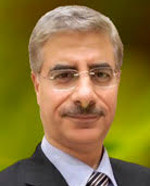 Khaled Salah is a full professor at the Department of Electrical and Computer Engineering, Khalifa University, UAE. He received the B.S. degree in Computer Engineering with a minor in Computer Science from Iowa State University, USA, in 1990, the M.S. degree in Computer Systems Engineering from Illinois Institute of Technology, USA, in 1994, and the Ph.D. degree in Computer Science from the same institution in 2000. He joined Khalifa University in August 2010, and is teaching graduate and undergraduate courses in the areas of cloud computing, computer and network security, computer networks, operating systems, and performance modeling and analysis. Prior to joining Khalifa University, Khaled worked for ten years at the department of Information and Computer Science, King Fahd University of Petroleum and Minerals (KFUPM), KSA.
Khaled Salah is a full professor at the Department of Electrical and Computer Engineering, Khalifa University, UAE. He received the B.S. degree in Computer Engineering with a minor in Computer Science from Iowa State University, USA, in 1990, the M.S. degree in Computer Systems Engineering from Illinois Institute of Technology, USA, in 1994, and the Ph.D. degree in Computer Science from the same institution in 2000. He joined Khalifa University in August 2010, and is teaching graduate and undergraduate courses in the areas of cloud computing, computer and network security, computer networks, operating systems, and performance modeling and analysis. Prior to joining Khalifa University, Khaled worked for ten years at the department of Information and Computer Science, King Fahd University of Petroleum and Minerals (KFUPM), KSA.
Khaled has over 190 publications and 3 US patents, has been giving a number of international keynote speeches, invited talks, tutorials, and research seminars on the subjects of Blockchain, IoT, Fog and Cloud Computing, and Cybersecurity.
Khaled was the recipient of Khalifa University Outstanding Research Award 2014/2015, KFUPM University Excellence in Research Award of 2008/09, and KFUPM Best Research Project Award of 2009/10, and also the recipient of the departmental awards for Distinguished Research and Teaching in prior years.
Khaled is a senior member of IEEE, and serves on the Editorial Boards of many WOS-listed journals including IET Communications, IET Networks, Elsevier's JNCA, Wiley's SCN, Wiley's IJNM, J.UCS, and AJSE. Khaled is the chari of the Track Chair of IEEE Globecom 2018 on Cloud Computing. He is the main keynote speaker of the 15th IEEE AICCSA2018 conference. His keynote speech is entitled, “Blockchain: a New Disruptive Force.”
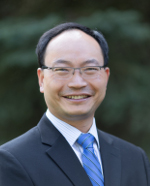 Weisong Shi is a Charles H. Gershenson Distinguished Faculty Fellow and a Professor of Computer Science at Wayne State University where he directs the Mobile and Internet Systems Laboratory, the Connected and Autonomous Driving Laboratory, and Wayne State Wireless Health Initiative. He is also the Program Director of the Cyber-Physical Systems (CPS) program at Wayne State. He is an IEEE Fellow and an ACM Distinguished Scientist.
Weisong Shi is a Charles H. Gershenson Distinguished Faculty Fellow and a Professor of Computer Science at Wayne State University where he directs the Mobile and Internet Systems Laboratory, the Connected and Autonomous Driving Laboratory, and Wayne State Wireless Health Initiative. He is also the Program Director of the Cyber-Physical Systems (CPS) program at Wayne State. He is an IEEE Fellow and an ACM Distinguished Scientist.
Dr. Shi received his B. E. from Xidian University in 1995, and Ph.D. degree from the Chinese Academy of Sciences in 2000, both in Computer Engineering. He authored one book, edited one book, published over 180 publications cited by 5000+ times (H-index: 38), received research support from and consulted for a variety of governmental and industrial organizations, such as National Science Foundation, Department of Veteran Affairs, Air Force Research Laboratory, Gates Foundation, Swedish Research Council, Michigan Life Science Corridor, Facebook, Intel, Chrysler and so on. He is the inaugural Editor-in-Chief of Smart Health Journal, the Associate Editor-in-Chief of IEEE Internet Computing Magazine. He had served as the chair of the IEEE Computer Society Technical Committee on the Internet (TCI) during 2012-2016, and serves on the editorial board of IEEE Transactions on Services Computing, ACM Transactions on Internet of Things, IEEE Internet Computing, Elsevier Sustainable Computing, and so on.
Dr. Shi is a recipient of the National Outstanding Ph.D. dissertation award of China (2002), the NSF CAREER award (2007), Wayne State University Career Development Chair award (2009), Charles H. Gershenson Distinguished Faculty Fellow (2015), College of Engineering Faculty Research Excellence Award (2016), the Best Paper award of ICWE'04, IEEE IPDPS'05, HPCChina'12 and IEEE IISWC'12, the Best Paper Nominee award of ACM UbiComp'14, the Best Student Paper Award of IEEE HealthCom'15, the Best Paper Award from IEEE eHealth in 2017. This month, he received the Most Downloaded Publication Award for his paper “The Promise of Edge Computing” published on IEEE Computer Magazine.
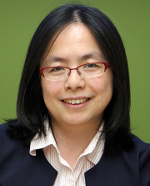 Hong Wan is Associate Professor in the School of Industrial Engineering at Purdue University. She is the director of the Purdue IE blockchain lab, which is the first research lab to study blockchain from the operations research and system engineering point of view. Specifically, the lab focuses on blockchain characterization, simulation, data analysis, and mechanism design through optimization. Her other research interests include complex system simulation experimental design, applied statistics, quality management, and healthcare engineering. Her work has been published in prestigious journals including Operations Research, Naval Research Logistics, and INFORMS Journal on Computing. She currently serves as the associate editor of the ACM TOMACS and is a member of IEEE, INFORMS and IIE. Her web page is http://web.ics.purdue.edu/hwan and her email address is hwan@purdue.edu.
Hong Wan is Associate Professor in the School of Industrial Engineering at Purdue University. She is the director of the Purdue IE blockchain lab, which is the first research lab to study blockchain from the operations research and system engineering point of view. Specifically, the lab focuses on blockchain characterization, simulation, data analysis, and mechanism design through optimization. Her other research interests include complex system simulation experimental design, applied statistics, quality management, and healthcare engineering. Her work has been published in prestigious journals including Operations Research, Naval Research Logistics, and INFORMS Journal on Computing. She currently serves as the associate editor of the ACM TOMACS and is a member of IEEE, INFORMS and IIE. Her web page is http://web.ics.purdue.edu/hwan and her email address is hwan@purdue.edu.
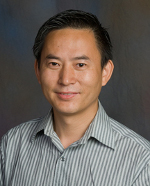 Honggang Wang was the "Scholar of The Year" (2016). Before he joined UMass Dartmouth in 2009, he has worked for Bell Labs Lucent Technologies China from 2001 to 2004 as a Member of Technical Staff. He received his Ph.D. in Computer Engineering at University of Nebraska-Lincoln in 2009. He is a tenured associate professor at UMass Dartmouth. His research interests include Internet of Things, Wireless Health, Body Area Networks (BAN), Cyber and Multimedia Security, Mobile Multimedia and Cloud, Wireless Networks and Cyber-physical System, and BIG DATA in mHealth. He has published more than 150 papers in his research areas. He was an invited participant by National Academic Engineering (NAE) for 2017 German-American Frontiers of Engineering Symposium, as one of about 50 outstanding engineers (ages 30-45) from US companies, universities, and government labs. He has served as the general chair/co-chair and TPC chair/co-chairs for many IEEE conferences. He also serves as the steering committee co-chair of IEEE CHASE and TPC co-chair of IEEE CHASE 2016, which is a leading international conference in the field of connected health. He has also been serving as the Associate Editor in Chief (EiC) for IEEE Internet of Things journal (SCI impact factor: 7.596), associate editors for IEEE Transactions on Big Data and IEEE Transactions on Multimedia, an Editor of IEEE Transactions on Vehicular Technology, Associate Technical Editor of IEEE Communication Magazine. He received IEEE Multimedia Communications Technical Committee (MMTC) Outstanding Leadership Award (2015) and IEEE HEALTHCOM 2015 Outstanding Service Award. His research is supported by NSF DoT, UMass President office, and UMass Healey Grant (total over 2M dollars).
Honggang Wang was the "Scholar of The Year" (2016). Before he joined UMass Dartmouth in 2009, he has worked for Bell Labs Lucent Technologies China from 2001 to 2004 as a Member of Technical Staff. He received his Ph.D. in Computer Engineering at University of Nebraska-Lincoln in 2009. He is a tenured associate professor at UMass Dartmouth. His research interests include Internet of Things, Wireless Health, Body Area Networks (BAN), Cyber and Multimedia Security, Mobile Multimedia and Cloud, Wireless Networks and Cyber-physical System, and BIG DATA in mHealth. He has published more than 150 papers in his research areas. He was an invited participant by National Academic Engineering (NAE) for 2017 German-American Frontiers of Engineering Symposium, as one of about 50 outstanding engineers (ages 30-45) from US companies, universities, and government labs. He has served as the general chair/co-chair and TPC chair/co-chairs for many IEEE conferences. He also serves as the steering committee co-chair of IEEE CHASE and TPC co-chair of IEEE CHASE 2016, which is a leading international conference in the field of connected health. He has also been serving as the Associate Editor in Chief (EiC) for IEEE Internet of Things journal (SCI impact factor: 7.596), associate editors for IEEE Transactions on Big Data and IEEE Transactions on Multimedia, an Editor of IEEE Transactions on Vehicular Technology, Associate Technical Editor of IEEE Communication Magazine. He received IEEE Multimedia Communications Technical Committee (MMTC) Outstanding Leadership Award (2015) and IEEE HEALTHCOM 2015 Outstanding Service Award. His research is supported by NSF DoT, UMass President office, and UMass Healey Grant (total over 2M dollars).
 Dr. Jiang Xiao is currently an associate professor in School of Computer Science and Technology at Huazhong University of Science and Technology (HUST), Wuhan, China. She received the BSc degree from HUST in 2009 and the PhD degree from Hong Kong University of Science and Technology (HKUST) in 2014. She has been engaged in research on wireless indoor localization, smart sensing, big data analysis, and distributed computing. Jiang has directed and participated in many research and development projects and grants from funding agencies such as National Natural Science Foundation of China (NSFC), Hong Kong Research Grant Council (RGC), Hong Kong Innovation and Technology Commission (ITC), and industries like Huawei, Tencent and Intel, and been invited by NSFC in reviewing research projects. Her awards include CCF-Intel Young Faculty Research Program 2017, and Best Paper Awards from IEEE ICPADS/GLOBECOM.
Dr. Jiang Xiao is currently an associate professor in School of Computer Science and Technology at Huazhong University of Science and Technology (HUST), Wuhan, China. She received the BSc degree from HUST in 2009 and the PhD degree from Hong Kong University of Science and Technology (HKUST) in 2014. She has been engaged in research on wireless indoor localization, smart sensing, big data analysis, and distributed computing. Jiang has directed and participated in many research and development projects and grants from funding agencies such as National Natural Science Foundation of China (NSFC), Hong Kong Research Grant Council (RGC), Hong Kong Innovation and Technology Commission (ITC), and industries like Huawei, Tencent and Intel, and been invited by NSFC in reviewing research projects. Her awards include CCF-Intel Young Faculty Research Program 2017, and Best Paper Awards from IEEE ICPADS/GLOBECOM.
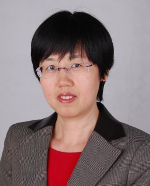 Zheng Yan is currently a full professor at the Xidian University, China and a visiting professor and Finnish academy research fellow at the Aalto University, Finland. She received the Doctor of Science in Technology from the Helsinki University of Technology, Finland. She authored and co-authored about 200 peer-reviewed articles, 8 conference proceedings and solely authored two books. She is an inventor of 60+ granted patents and PCT patents, all of them were adopted or purchased by industry. Some of her granted patents are applied in international standards. She has given 20 keynotes and invited talks in international conferences and universities. Her research interests are in trust, security and privacy; data mining; mobile applications and services; social networking and cloud computing. Prof. Yan serves as an organizational and technical committee member for more than 80 international conferences and workshops. She is an associate editor of IEEE IoT Journal, Information Fusion, Information Sciences, IEEE Access, JNCA, Soft Computing, IEEE Blockchain Technical Briefs, Security and Communication Networks, etc. and a special issue leading guest editor of ACM TOMM, Future Generation Computer Systems, Computers & Security, IJCS, MONET, IEEE Systems Journal, etc. She is a founder steering committee co-chair of IEEE Blockchain conference. She is organizing and has organized 10+ conferences, such as IEEE Blockchain 2018, NSS/ICA3PP/IEEE CIT2017, IEEE TrustCom/BigDataSE/ISPA-2015, IEEE CIT2014, etc. Her recent awards include a number of Outstanding Leadership Awards for the IEEE conference organization; the 2017 IEEE ComSoc TCBD Best Journal Paper Award; Outstanding Associate Editor of 2017 for IEEE Access; EU Eureka Excellence Award (2017); Best Individual of Shaanxi Province from Abroad (2014), “100 Expert Plan” winner of Shaanxi Province, China (2011); Sisu Award of Nokia Research Center (2010); EU ITEA Bronze Achievement Award (2008). She is a senior member of IEEE.
Zheng Yan is currently a full professor at the Xidian University, China and a visiting professor and Finnish academy research fellow at the Aalto University, Finland. She received the Doctor of Science in Technology from the Helsinki University of Technology, Finland. She authored and co-authored about 200 peer-reviewed articles, 8 conference proceedings and solely authored two books. She is an inventor of 60+ granted patents and PCT patents, all of them were adopted or purchased by industry. Some of her granted patents are applied in international standards. She has given 20 keynotes and invited talks in international conferences and universities. Her research interests are in trust, security and privacy; data mining; mobile applications and services; social networking and cloud computing. Prof. Yan serves as an organizational and technical committee member for more than 80 international conferences and workshops. She is an associate editor of IEEE IoT Journal, Information Fusion, Information Sciences, IEEE Access, JNCA, Soft Computing, IEEE Blockchain Technical Briefs, Security and Communication Networks, etc. and a special issue leading guest editor of ACM TOMM, Future Generation Computer Systems, Computers & Security, IJCS, MONET, IEEE Systems Journal, etc. She is a founder steering committee co-chair of IEEE Blockchain conference. She is organizing and has organized 10+ conferences, such as IEEE Blockchain 2018, NSS/ICA3PP/IEEE CIT2017, IEEE TrustCom/BigDataSE/ISPA-2015, IEEE CIT2014, etc. Her recent awards include a number of Outstanding Leadership Awards for the IEEE conference organization; the 2017 IEEE ComSoc TCBD Best Journal Paper Award; Outstanding Associate Editor of 2017 for IEEE Access; EU Eureka Excellence Award (2017); Best Individual of Shaanxi Province from Abroad (2014), “100 Expert Plan” winner of Shaanxi Province, China (2011); Sisu Award of Nokia Research Center (2010); EU ITEA Bronze Achievement Award (2008). She is a senior member of IEEE.
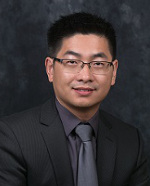 Dr. Shucheng Yu is an Associate Professor of Electrical and Computer Engineering at Stevens Institute of Technology. Before he joined Stevens, Dr. Yu was an associate professor of Computer Science at the University of Arkansas at Little Rock, where he also served as the chair of the Computer Science department and the director of the Computational Research Center of the university. He received his PhD in Electrical and Computer Engineering from Worcester Polytechnic Institute in 2010. His research interest is on cybersecurity in general, with recent focuses on security and privacy for data analytics, security & privacy in smart systems, wireless systems and security. He has published over sixty impactful research articles in academic journals and conference proceedings which have received numerous citations. He has been the editor or guest editor for four international journals, and at the organizing committee for over ten international conferences including IEEE Infocom and IEEE Globecom. He serves the board of trustee for Wireless and Optical Communication Conference (WOCC) and is a member of IEEE and ACM.
Dr. Shucheng Yu is an Associate Professor of Electrical and Computer Engineering at Stevens Institute of Technology. Before he joined Stevens, Dr. Yu was an associate professor of Computer Science at the University of Arkansas at Little Rock, where he also served as the chair of the Computer Science department and the director of the Computational Research Center of the university. He received his PhD in Electrical and Computer Engineering from Worcester Polytechnic Institute in 2010. His research interest is on cybersecurity in general, with recent focuses on security and privacy for data analytics, security & privacy in smart systems, wireless systems and security. He has published over sixty impactful research articles in academic journals and conference proceedings which have received numerous citations. He has been the editor or guest editor for four international journals, and at the organizing committee for over ten international conferences including IEEE Infocom and IEEE Globecom. He serves the board of trustee for Wireless and Optical Communication Conference (WOCC) and is a member of IEEE and ACM.
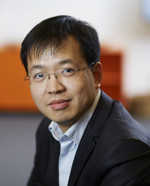 Yan Zhang is Full Professor at the Department of Informatics, University of Oslo, Norway. He received a PhD degree in School of Electrical & Electronics Engineering, Nanyang Technological University, Singapore. He is an Associate Technical Editor of IEEE Communications Magazine, an Editor of IEEE Network Magazine, an Editor of IEEE Transactions on Green Communications and Networking, an Editor of IEEE Communications Surveys & Tutorials, an Editor of IEEE Internet of Things Journal, an Editor of IEEE Vehicular Technology Magazine, and an Associate Editor of IEEE Access. He serves as chair positions in a number of conferences, including IEEE GLOBECOM 2017, IEEE VTC-Spring 2017, IEEE PIMRC 2016, IEEE CloudCom 2016, IEEE ICCC 2016, IEEE CCNC 2016, IEEE SmartGridComm 2015, and IEEE CloudCom 2015. He serves as TPC member for numerous international conference including IEEE INFOCOM, IEEE ICC, IEEE GLOBECOM, and IEEE WCNC. His current research interests include: next-generation wireless networks leading to 5G, green and secure cyber-physical systems (e.g., smart grid, healthcare, and transport). He is IEEE VTS (Vehicular Technology Society) Distinguished Lecturer. He is also a senior member of IEEE, IEEE ComSoc, IEEE CS, IEEE PES, and IEEE VT society.
Yan Zhang is Full Professor at the Department of Informatics, University of Oslo, Norway. He received a PhD degree in School of Electrical & Electronics Engineering, Nanyang Technological University, Singapore. He is an Associate Technical Editor of IEEE Communications Magazine, an Editor of IEEE Network Magazine, an Editor of IEEE Transactions on Green Communications and Networking, an Editor of IEEE Communications Surveys & Tutorials, an Editor of IEEE Internet of Things Journal, an Editor of IEEE Vehicular Technology Magazine, and an Associate Editor of IEEE Access. He serves as chair positions in a number of conferences, including IEEE GLOBECOM 2017, IEEE VTC-Spring 2017, IEEE PIMRC 2016, IEEE CloudCom 2016, IEEE ICCC 2016, IEEE CCNC 2016, IEEE SmartGridComm 2015, and IEEE CloudCom 2015. He serves as TPC member for numerous international conference including IEEE INFOCOM, IEEE ICC, IEEE GLOBECOM, and IEEE WCNC. His current research interests include: next-generation wireless networks leading to 5G, green and secure cyber-physical systems (e.g., smart grid, healthcare, and transport). He is IEEE VTS (Vehicular Technology Society) Distinguished Lecturer. He is also a senior member of IEEE, IEEE ComSoc, IEEE CS, IEEE PES, and IEEE VT society.
Subscribe to the IEEE Blockchain Technical Briefs
Join our Blockchain Technical Community and receive our Technical Briefs by email.
IEEE Blockchain Technical Briefs Editorial Board
Gora Datta, FHL7, SMIEEE, SMACM, Managing Editor
2024 Editorial Team
Justin Y. Shi, PhD, Editor-in-Chief
Boleslaw K. Szymanski, PhD
R.L. Shankar, PhD
Imran Bashir
Nicolae "Nicu" Goga, PhD
Constantin “Viorel” Marian, PhD
View the 2023 IEEE Blockchain Technical Briefs Editorial Board
View the 2022 IEEE Blockchain Technical Briefs Editorial Board
View the 2018-2020 IEEE Blockchain Technical Briefs Editorial Board
Past Issues
Read the top five most popular IEEE Blockchain Technical Briefs articles.
Read more (PDF, 731 KB)

